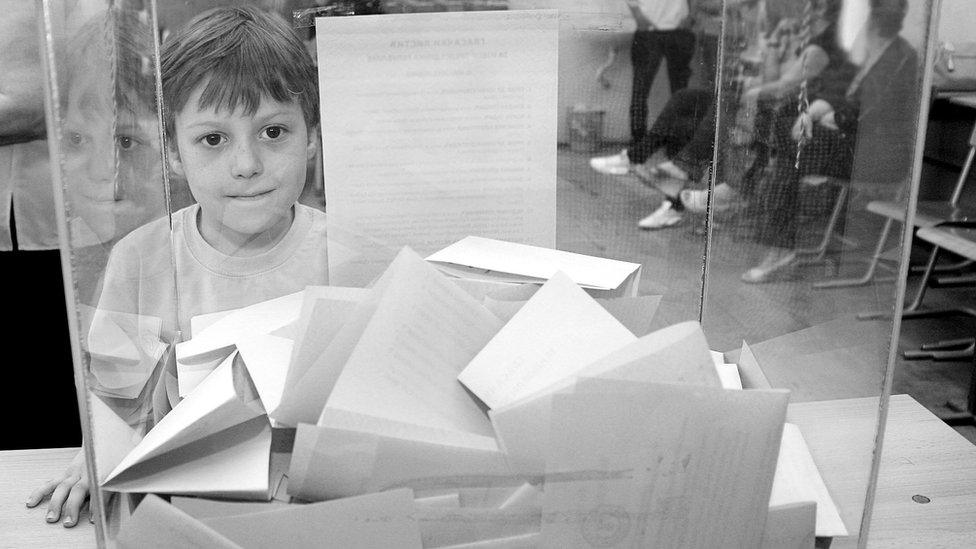NI 100: The huge challenges that faced NI's new government
- Published
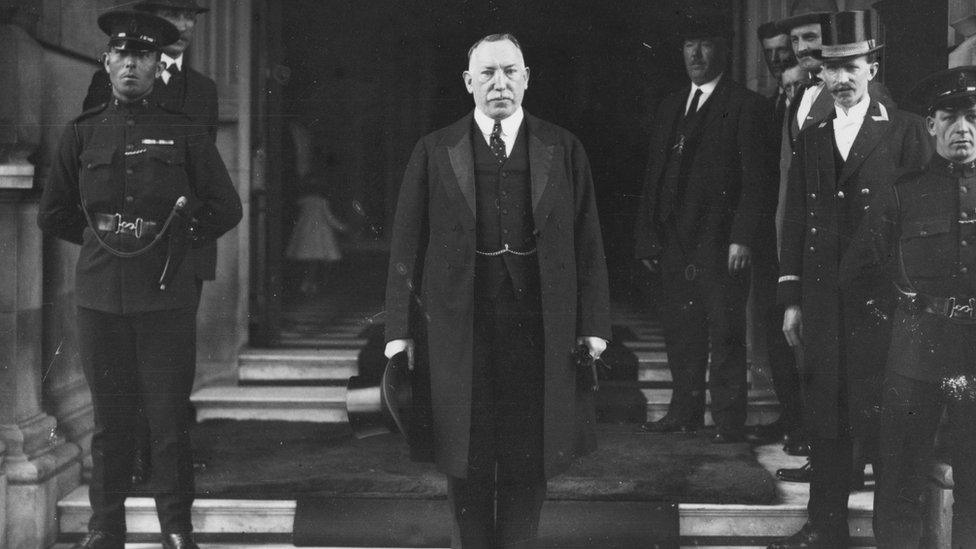
Sir James Craig became Northern Ireland's first prime minister a century ago
Almost exactly a century ago, on 7 June 1921, the Parliament of Northern Ireland met for the first time in the council chamber of Belfast City Hall.
At the meeting, the 40 unionist MPs present elected a speaker and carried out other administrative tasks.
It was the first time that a devolved parliament had been set up in the United Kingdom, and that brought with it challenges, not least setting up a new government from scratch.
BBC News NI looks at what happened at that first meeting and in the weeks and months afterwards as the new state of Northern Ireland got off the ground.
What was the Northern Ireland Parliament?
The parliament was created as part of a plan by the British government to solve the "Irish question".
For years, nationalists had demanded the whole of Ireland be granted home rule through a parliament based in Dublin, but this was opposed by unionists.
In 1920, with Ireland in the middle of the War of Independence, the British government passed the Government of Ireland Act, which created two home rule parliaments instead - one based in Dublin and the other in Belfast.
The Dublin parliament never became a reality as "Southern Ireland" eventually became an independent country - the Irish Free State - with its own legislature.
But Northern Ireland developed the first devolved parliament in the UK - with responsibility for finance, home affairs, labour, education, agriculture and commerce.
What happened at the first meeting?
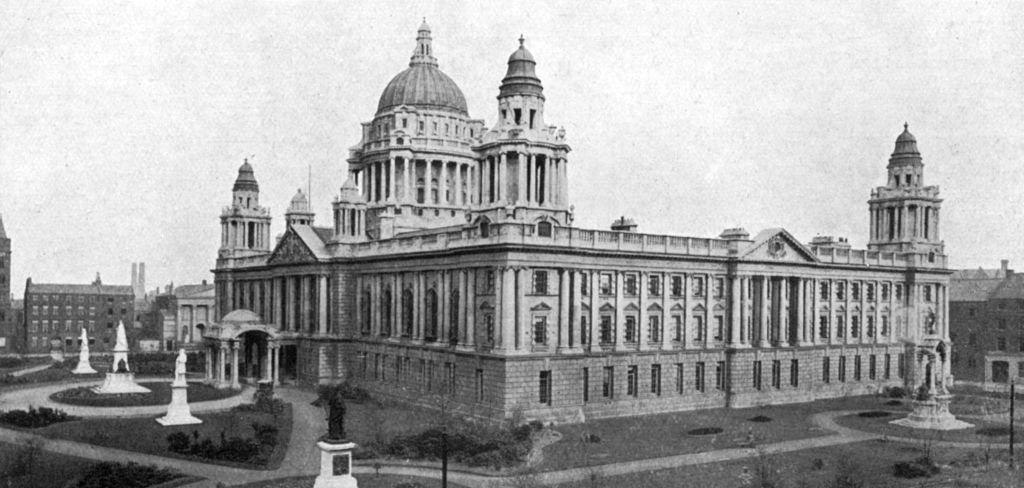
The parliament's first two sittings were at Belfast City Hall
The first meeting at Belfast City Hall saw all 40 Unionist MPs turn up, while the six Sinn Féin and six nationalist MPs boycotted proceedings.
Sir James Craig, the leader of the Unionist Party,had been appointed prime minister earlier that day by the lord lieutenant of Ireland.
There were also a number of other dignitaries present, including Church of Ireland bishops, members of the aristocracy and the lord lieutenant, who occupied the mayoral chair.
The proceedings began with a prayer and Hugh O'Neill, MP for Antrim and the uncle of future prime minister Terence O'Neill, was then elected speaker of the House of Commons.
Members of the Commons then took their oath of office before electing members to the Senate - the upper house.
What challenges did the new state face?
The Belfast Telegraph noted that "there is no parallel to the Northern Parliament in the British Isles... a great responsibility has been cast upon Ulster" and that the new parliament and government was responsible for setting up a state with a population greater than New Zealand, effectively from scratch.
Cabinet papers from the time, now held by the Public Records Office of Northern Ireland, reveal the first priorities with which the government had to deal.
At the very first meeting on 15 June the cabinet discussed ministerial salaries, temporary financial measures and the task of finding a permanent site for the new parliament, which did not yet have a long-term home.
Nine days later at their third meeting, they had to agree on salary scales for the new civil service and temporary accommodation for its staff.
Throughout the following months the issues of salaries, office space, the powers of the new government and seemingly minor issues such as restrictions on motor permits cropped up time and again.
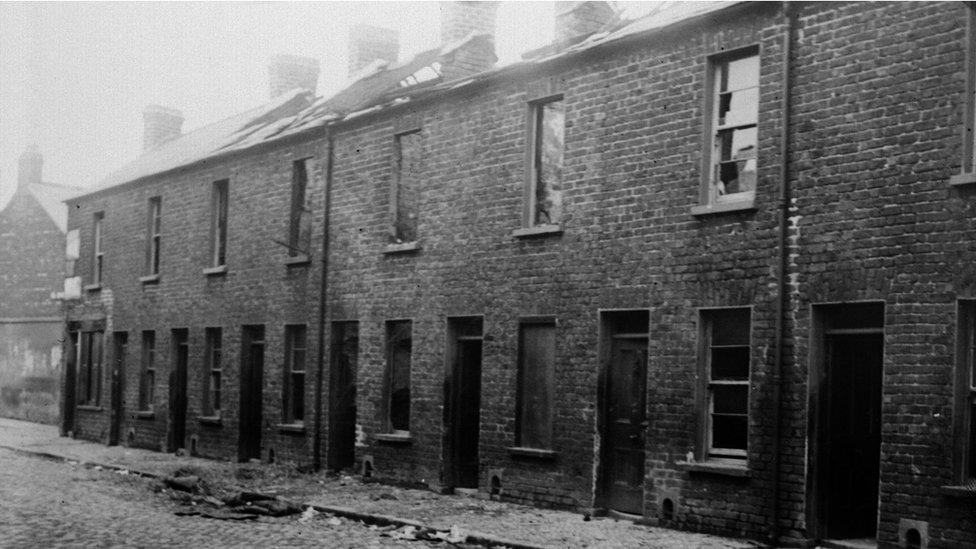
There was major civil unrest in Northern Ireland from 1920-22
But the new government also faced ongoing violence as the IRA mounted incursions across the border as part of the War of Independence.
The newspapers on the day the new parliament first met give some idea of the security challenges.
The Belfast Telegraph reported on the execution of "two Sinn Féiners" for the killing of a police officer. It also carried a report of a constable who was shot and seriously wounded in Dublin the previous night, news of a gun battle in the city and a double murder in Camlough, County Armagh, blamed on the IRA.
There was also communal violence - 450 people were killed in Belfast in the conflict between June 1920 and July 1922. Nearly 60% were Catholic and the overwhelming majority were civilians.
In addition, there was the question of what Northern Ireland as a state would look like in the future and if it could even survive.
When the Anglo-Irish Treaty brought an end to the War of Independence in December 1921 it included a Boundary Commission, which was to examine the new Irish border and make recommendations about whether it should be altered. Many nationalists believed this would lead to Northern Ireland being shrunk to the point where it was unviable.
What did the new government do?
Craig quickly set about establishing a government modelled on Westminster and Whitehall, with seven departments and supported by a cabinet secretariat.
The cabinet also quickly decided - by the end of the summer of 1921 - on a permanent site for the new parliament, at Stormont to the east of Belfast.
In the face of the security threats facing the new state, he turned to the Ulster Special Constabulary, an armed special reserve constable police force, which was the main tool at the government's disposal until the new police force, the Royal Ulster Constabulary, was formed in May 1922.
That month, amid spiralling violence including 90 murders in Belfast alone, Craig's government proscribed the IRA and related organisations and introduced internment without trial of suspected terrorists.
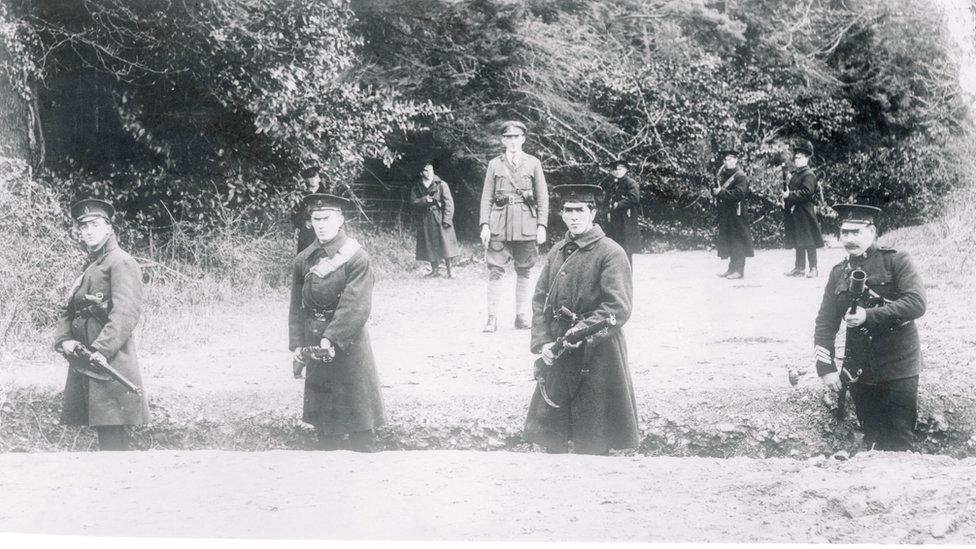
NI police, including members of the Ulster Special Constabulary, guarding a road near the Fermanagh/Cavan border (circa 1920s)
A night-time curfew was enforced across Northern Ireland and many border roads were closed. Flogging was approved as a "special punishment".
To set up the new Northern Ireland Civil Service, Craig was loaned experienced officials from London and together with the existing staff, they managed to ensure that the education system continued to function and payments and benefits were processed.
What was the outcome?
Despite the many challenges it faced, the new government managed to consolidate itself and Northern Ireland by the mid-1920s.
However, the methods used, particularly around security policy, remain highly controversial.
The severe security measures heightened the sense of alienation felt by many of the new state's Catholic minority.
Although law and order was largely restored by the end of 1922 sectarian tensions were never far from the surface.

The BBC News NI website has a dedicated section marking the 100th anniversary of the creation of Northern Ireland and partition of the island.
There are special reports on the major figures of the time and the events that shaped modern Ireland available at bbc.co.uk/ni100.
Year '21: You can also explore how Northern Ireland was created a hundred years ago in the company of Tara Mills and Declan Harvey.
Listen to the latest Year '21 podcast on BBC Sounds or catch-up on previous episodes.

Related topics
- Published3 May 2021
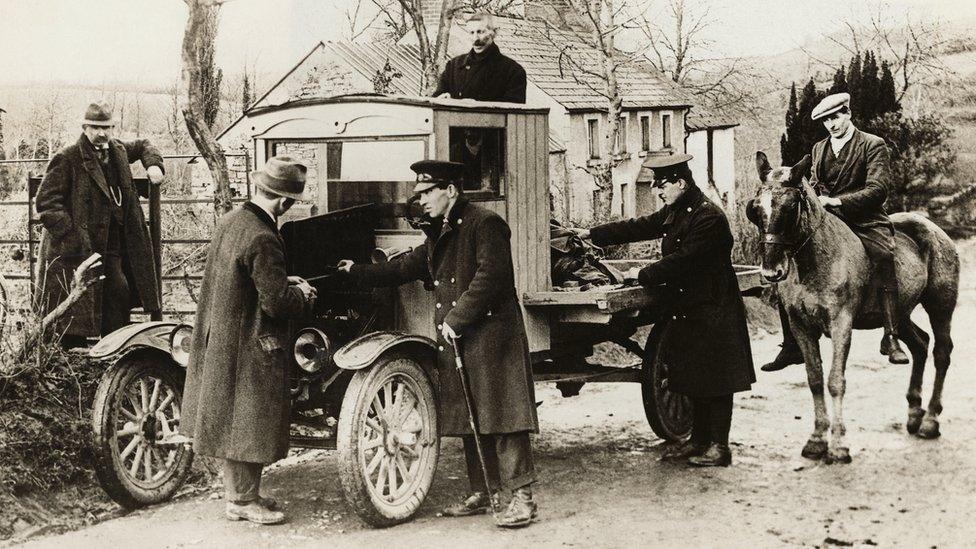
- Published24 May 2021
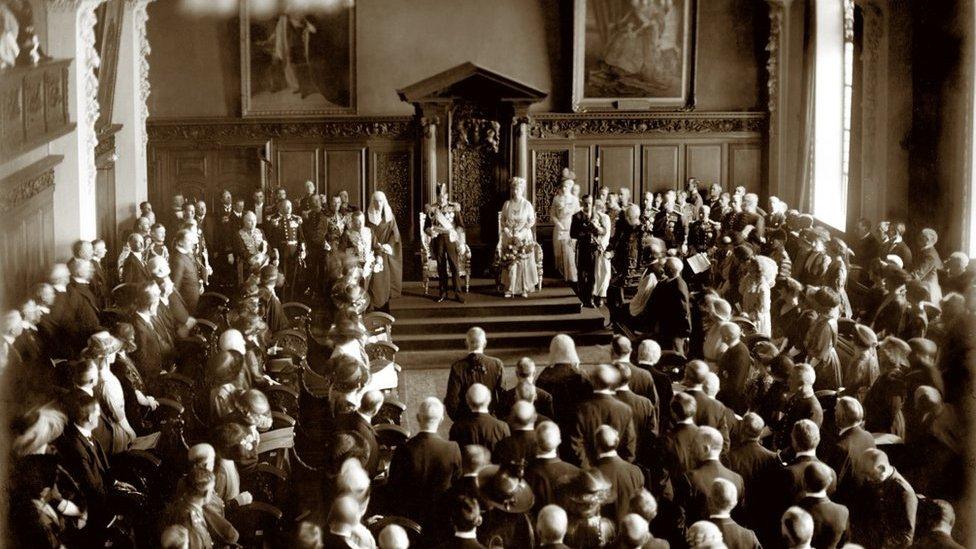
- Published24 May 2021
